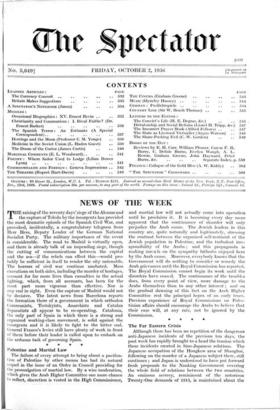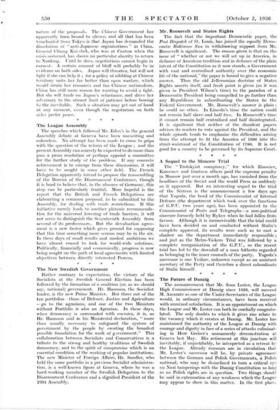The Far Eastern Crisis Although there has been no repetition
of the dangerous anti-Japanese incidents of the previous ten days, the past week has rapidly brought to a head the tension which these incidents created in Sino-Japanese relations. The Japanese occupation of the Hongkew area of Shanghai, following on the murder of a Japanese subject there, still continues ; and Japan is understood to have put forward fresh proposals to the Nanking Government covering the whole field of relations between the two countries. An ominous secrecy, reminiscent of the notorious Twenty-One demands of 1915, is maintained about the nature of the proposals. The Chinese .Government has apparently been bound to silence, and all that has been vouchsafed from Tokyo is that Japan has demanded the dissolution of " anti-Japanese organisations " in China. General Chiang Kai-shek, who Was at Canton when the crisis occurred, has shown no particular alacrity to return to Nanking. -Until he does, negotiations cannot begin in earnest. A certain amount of bluff will probably be in evidence on both sides. Japan will threaten,. but will not fight if she can help it ; for a policy of nibbling at Chinese territory suits her far better than open warfare, which would strain her resources and fan Chinese nationalism. China has still more reason for wanting to avoid a fight. But she will trade on Japan's reluctance, and drive her adversary to the utmost limit of patience before bowing to the inevitable. Such a situation may get out .of hand at any moment, even though the negotiators on both sides prefer peace.











































